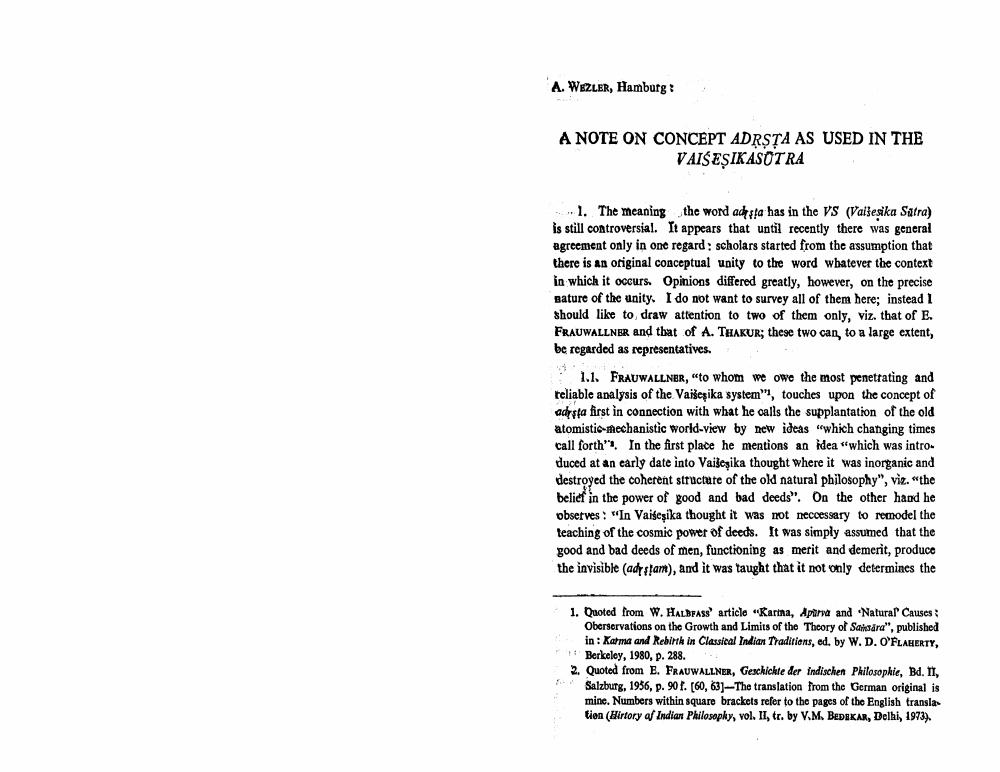Book Title: Note On Concept Adrsta As Used In Vaisesika Sutra Author(s): A Wezler Publisher: A Wezler View full book textPage 1
________________ A. WEZLER, Hamburg: A NOTE ON CONCEPT ADRSȚA AS USED IN THE VAIS ESIKASOTRA --- 1. The meaning the word adesta has in the VS (Vaijesika Satra) is still controversial. It appears that until recently there was general agreement only in one regard: scholars started from the assumption that there is an original conceptual unity to the word whatever the context in which it occurs. Opinions differed greatly, however, on the precise Bature of the unity. I do not want to survey all of them here; instead I should like to draw attention to two of them only, viz. that of E. FRAUWALLNBR and that of A. THAKUR; these two can, to a large extent, be regarded as representatives. 1.1. FRAUWALLNER, "to whom we owe the most penetrating and reliable analysis of the Vaišepika system", touches upon the concept of adrsta first in connection with what he calls the supplantation of the old atomistic-mechanistic world-view by new ideas "which changing times call forth". In the first place he mentions an idea "which was introduced at an early date into Vaišeșika thought where it was inorganic and destroyed the coherent stractate of the old natural philosophy", viz.the belief in the power of good and bad deeds". On the other hand he observes: "In Vaiscsika thought it was not neccessary to remodel the teaching of the cosmic power of deeds. It was simply assumed that the good and bad deeds of men, functioning as merit and demerit, produce the invisible (adysart), and it was taught that it not only determines the 1. Daoted from W. HALBFASS' article "Kartha, Aparna and Natural Causes Oberservations on the Growth and Limits of the Theory of Samsara", published in : Karma and Rebirth in Classical Indian Traditions, ed. by W. D. OʻFLAHERTY, Berkeley, 1980, p. 288. 2. Quoted from E. FRAUWALLNER, Geschichte der indischen Philosophie, Bd. 11, Salzburg, 1956, p. 901. [60, 63)-The translation from the German original is mine. Numbers within square brackets refer to the pages of the English transla tion (Hirtory of Indian Philosophy, vol. II, tr. by V.M. BEDEKAR, Delhi, 1973).Page Navigation
1 2 3 4 5 6 7 8 9 10 11 12 13
